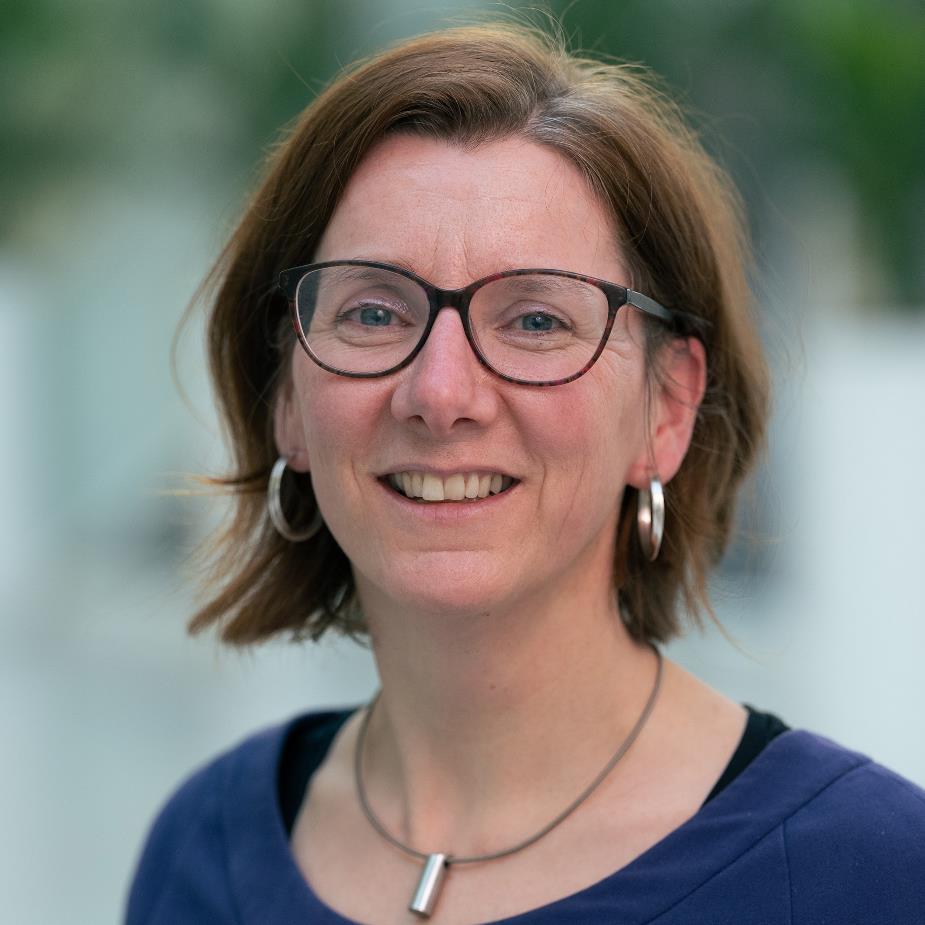‘Now we have to put our money where our mouth is'
1 June 2022
Jenny Coenen her delivers inaugural lecture on Smart Sustainable Manufacturing - Something has to happen now. The manufacturing industry uses far more resources and energy than is desirable and responsible.

Jenny Coenen her delivers inaugural lecture on Smart Sustainable Manufacturing - Something has to happen now. The manufacturing industry uses far more resources and energy than is desirable and responsible. The inaugural lecture by Jenny Coenen, professor in Smart Sustainable Manufacturing, will have a tone of urgency. Her research group studies how to set up sustainable production chains. Jenny will deliver her lecture on 8 June.
Jenny Coenen has a background in the shipbuilding industry. It doesn't take her long to find a metaphor from that shipbuilding industry to characterise the current transitional phase in the manufacturing industry. ‘The shore will turn the ship. Just look at the current situation. There is no personnel to be found. Materials are unavailable or delivered too late. The industry is experiencing great pressure to reduce CO2 and nitrogen emissions. Moving to a smart and sustainable industry always had a nice sound to it. But now we have to put our money where our mouth is.’
She has been a professor for a year and a half now. The inaugural lecture is the crown on all the work of the past eighteen months. ‘As a team, we defined our research projects and started up a number of things. We are ready to show that to the outside world on 8 June.’
Relevant for students
‘All our research is driven by questions from the field. I keep one eye on the developments that take place in the academic world. And my other eye on the daily problems of companies. I want to bring these two streams together. I also want to bring students into contact with smart sustainable manufacturing in a somewhat protected setting. We are building a Re-Manufacturing Lab in Delft. Together with students, we will try out things that we cannot do in a production environment. The sustainability problem is so urgent that I cannot wait there for practical questions, but I want to anticipate the questions that will come."
For smaller companies
What is smart manufacturing? ‘A production process is smart when its components are so interconnected that the product can develop a certain degree of autonomy based on the sensor information it receives. In our research, we want to connect a virtual product with a physical product. This will allow us to bypass many layers in an IT and industrial architecture. We think this is also a good path for smaller companies that don't have the capacity to develop in all those areas of smart manufacturing.’
Dismantling
In the Re-Manufacturing Lab, Jenny and her team will only de-assemble for the time being. Disassemble. ‘The number of digitisation steps will be exactly the same, but we immediately contribute more to the recycling of materials. I can paint a picture of new business models in smart manufacturing. These are very important and we will be needing those. But I'd rather do things that offer students and the business community a more action-based perspective.’
Director-owner
That means therefore that the manufacturing industry must change heading. Jenny Coenen mentions the company Lely as an example. ‘This company - it produces milk robots - has digitised its own processes really well. It makes smart products. It has created a market for second-hand machines and remanufactured machines. It does everything to ensure that such a machine has the longest possible lifespan, with software that remains compatible.’
In general, Jenny Coenen sees the most opportunities for smart and sustainable manufacturing in companies with a director-owner. ‘These companies see the necessaty for corporate social responsibility. When it comes to the automation side, they often make different choices than other companies. First take care to be a good employer and build your whole process around that. When you such a clear vision, you can develop in other directions. Those companies are more likely to take steps to become sustainable.’
Life cycle
This heading results in different business models. ‘Take the example of Lely. It would rather market the milking machines as a service. This would give them much more control over the lifecycle of the machine and you can do more to extend its life. In that new business model, people are perhaps even more important than they are today. Let's say we can compensate for the outflow of people in engineering with smart machines. Then we have to try to make these people rapidly employable as operators of that smart technology. People are still at the control buttons, but they can work more efficiently and produce larger volumes."
Double meaning
The inaugural lecture is entitled ‘Can we make it?’. A title with a double meaning. ‘On one side, there is the question: what can we do and what should we know more about? On the other side, there is the more ethical question: are we doing the right things? Shouldn't we be working with even more urgency on the circular manufacturing industry? I hope that the SMEs will take from my inaugural lecture that we are aware of their problems. I'm not going to make a big deal out of it, but I will explicitly address real issues that affect them.’
Welcome
Want to join us? Feel welcome to attend. People who previously registered via the link and yet are unable to attend will receive a video link.
Click on this link for more information on the inaugural lecture.